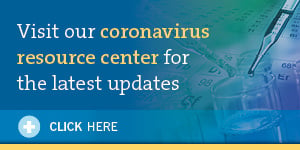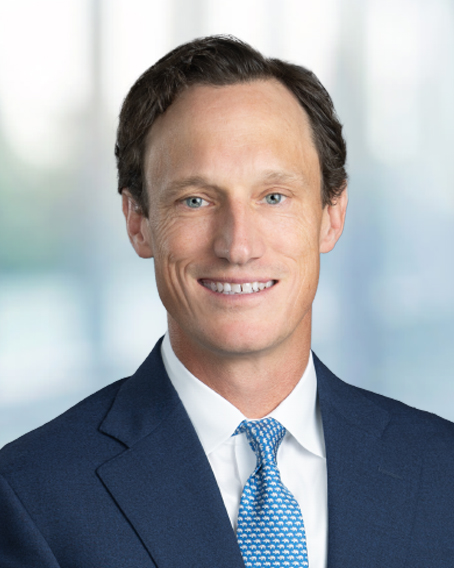As COVID-19 continues to spread throughout Latin America, so do increased opportunities for corruption and bribery. Anticipated economic contractions have caused various countries and global aid organizations to offer financial support to the region, including the World Bank providing Argentina with $300 million in emergency funds, Brazil’s $29 billion stimulus package, and Peru’s $26 billion emergency package, among others.1
The elevated corruption risks that Latin America continues to experience will significantly complicate the unprecedented influx of government money into the region. In the past decade, Latin America has contended with various scandals, such as corruption exposed by the Lavo Jato investigation;2 the indictment of a German banker and seven other former officials, third-party money launderers, and affluent Venezuelans in an international embezzlement scheme;3 and the ongoing investigation of former Mexican president Enrique Pena Nieto4 in relation to the bribery and money-laundering scheme that has already led to the arrest of the former CEO of Mexico’s state-run oil company, Pemex.
Now more than ever, it is imperative that companies remain focused on long-term compliance goals in the region, as government enforcement actions and litigation typically follow quickly after a crisis takes hold. This client alert explores scandals around the world arising from past humanitarian crises in an attempt to better understand how the COVID-19 crisis poses unique risks given corruption concerns in the Latin American region.
Past crises and resulting widespread corruption
Past regional or national crises can help in understanding the challenges this unprecedented crisis may pose, both on a global scale and in Latin America.
For instance, in 1996, the U.N. Security Council instituted the Oil-for-Food program in response to sanctions on Iraq following the Gulf War.5 The program allowed Iraq to sell enough oil to pay for food and other necessities, so long as the United Nations approved such sales, with profits entered into U.N.-controlled escrow accounts.6 Senior government officials received wide latitude in determining who purchased Iraq’s oil and from which vendors the United Nations purchased goods with Iraqi-oil profits.7
A 2004 Central Intelligence Agency (“CIA”) investigation revealed Saddam Hussein’s exploitation of the program, which resulted in $1.7 billion in kickbacks and surcharges and $10.9 billion in illegal oil smuggling.8 The corruption, however, was not limited to Iraq: a U.N. Inquiry Committee interim report found the Oil-for-Food program’s procurement office did not follow its own rules to “assure fairness and accountability.”9 As a result of the scandal, the U.S. government initiated investigations into the program via the Treasury Department and the U.S. Attorney’s Office for the Southern District of New York.10
Yet the risk of bribery increases as a result of crises no matter which area of the globe is affected. In the U.S., for example, New Orleans’s mayor, C. Ray Nagin, was found guilty of bribery after accepting money, vacations, and services in exchange for city contracts awarded in the wake of the Hurricane Katrina disaster.11 Hurricane Maria, which hit Puerto Rico in 2017 and claimed 2,975 lives, inspired corruption as well.12 On September 3, 2019, a former Federal Emergency Management Agency official was arrested for allegedly funneling contracts to repair the shredded electrical grid to Cobra Acquisitions LLC in exchange for various personal benefits, including helicopter tours, access to a Cobra executive’s personal credit card, and airfare.13
Another example can be found in fraud associated with the Troubled Asset Relief Program (“TARP”), which provided a $700 billion bank bailout and was monitored by a Congressional oversight panel in response to the 2008 financial crisis.14 To ensure the lawful participation in the program, Congress created the Office of the Special Inspector General for the Troubled Asset Relief Program (“SIGTARP”).15 The need for SIGTARP proved essential: within a short time after TARP’s release, $20 billion of relief had been paid to executives of the bailed-out companies in bonuses.16 And as of December 31, 2019, SIGTARP investigations have led to the criminal convictions of 381 bankers, bank borrowers, and homeowner scammers.17
Industry pressures to be expected
Certain issues can be anticipated in the COVID-19 crisis until the outbreak and its potentially devastating economic aftermath are contained.
Procurement in Latin America, for example, will pose enormous risks regardless of the industry involved. Even before the release of billions of government dollars earmarked for the COVID-19 response, a 2018 report published by the Inter-America Development Bank estimated that procurement inefficiencies caused by corruption and delays in Latin America and the Caribbean “could amount to as much as 4.4 percent of GDP, or $220 billion.”18
Further, as the pressures on sales representatives, consultants, and distributors to keep business operating grow, individuals will be tempted to engage in bribery or fraud if they feel it is necessary to protect their jobs or keep their business open. Employees may find themselves more likely to manipulate books and records to qualify for government aid, to rig contracts as a means to obtain much-needed revenue, or to boost financial performance to qualify for loans or retain investors. Businesses may find themselves unwilling to comply with shelter-in-place and quarantine orders, which are already in place in many Latin American countries.19
Also at particular risk are companies interacting with customs enforcement, an area already of heightened risk. For example, in 2013, Ralph Lauren Co. entered into a Non-Prosecution Agreement to settle a criminal and civil investigation by the SEC and DOJ.20 The Argentine subsidiary allegedly bribed Argentinian customs officials to circumvent or avoid entirely paperwork necessary for customs clearance.21 During the time of the alleged bribery, Ralph Lauren had no anti-corruption program and lacked oversight of its operations in Argentina.22 As governments tighten controls or even close their borders in response to the COVID-19 crisis, employees may be put under extreme pressure to get much-needed goods or supplies into or out of Latin American markets.
Looking forward in the COVID-19 era
The immediate focus for companies is, and should be, protecting their businesses and personnel from the immediate effects of COVID-19. But, as soon as practicable, companies operating in Latin America should also consider performing forward-looking COVID-19 risk assessments to determine the future risks and pressures this pandemic will place on their businesses and determine what can be done to address areas of concern to avoid legal ramifications. While companies may be tempted to eliminate or reduce compliance teams during these difficult financial times, past crises show that the legal and regulatory risks that businesses face now are only elevated in the face of the COVID-19 crisis and resulting economic uncertainty.
- Luisa Horwitz, Paolo Nagovitch, Holly K. Sonneland, and Carin Zissis, Where is the Coronavirus in Latin America? Amer. Soc./Counc. of the Amer. (Apr. 1, 2020), available at https://www.as-coa.org/articles/where-coronavirus-latin-america. Peru Readies $26 Billion Stimulus Plan to Mitigate Coronavirus Impact, NY Times (Mar. 30, 2020), available at https://www.nytimes.com/reuters/2020/03/30/world/americas/30reuters-health-coronavirus-peru.html.
- Operation Car Wash: Is this the biggest corruption scandal in history?, The Guardian (Jun. 1, 2017), available at https://www.theguardian.com/world/2017/jun/01/brazil-operation-car-wash-is-this-the-biggest-corruption-scandal-in-history.
- How millions of ‘dirty dollars’ were laundered out of Venezuela, DW (Mar. 13, 2019), available at https://www.dw.com/en/how-millions-of-dirty-dollars-were-laundered-out-of-venezuela/a-47867313.
- Former Mexico President Pena Nieto investigated in corruption probe: report, Reuters (Feb. 19, 2020), available at https://www.reuters.com/article/us-mexico-corruption/former-mexico-president-pena-nieto-investigated-in-corruption-probe-report-idUSKBN20E01N.
- Sharon Otterman, IRAQ: Oil for Food Scandal, Council on Foreign Relations, available at https://www.cfr.org/backgrounder/iraq-oil-food-scandal.
- Id.
- Id.
- Id.
- Id.
- Id. The criminal investigation initiated by the Southern District of New York settled on February 7, 2007. Defendant company El Paso, which allegedly purchased Iraqi oil under the Oil-for-Food program from third parties that funneled money to the Iraqi government, agreed to forfeit a penalty fee of $5,482,363 to the U.S. government. U.S. Announces Oil-For-Food Settlement with El Paso Corporation, U.S. Att’y S. Dist. N.Y. (Feb. 7, 2007), available at https://www.justice.gov/archive/usao/nys/pressreleases/February07/elpasoagreementpr.pdf.
- Campbell Robertson, Nagin Guilty of 20 Counts of Bribery and Fraud, NY Times (Feb. 12, 2014), available at https://www.nytimes.com/2014/02/13/us/nagin-corruption-verdict.html.
- Puerto Rico A Year After Hurricane Maria, Amnesty Int’l, available at https://www.amnesty.org/en/latest/research/2018/09/puerto-rico-a-year-after-hurricane-maria/ (last visited Mar. 31, 2020); Frances Robles, FEMA Was Sorely Unprepared for Puerto Rico Hurricane, Report Says, NY Times (Jul. 12, 2018), available at https://www.nytimes.com/2018/07/12/us/fema-puerto-rico-maria.html.
- Patricia Mazzei and Frances Robles, Former FEMA Official Accused of Taking Bribes in Hurricane Maria Recovery, NY Times (Sept. 10, 2019), available at https://www.nytimes.com/2019/09/10/us/puerto-rico-fema-arrests-corruption.html.
- Alan Rappeport and Jeanna Smialek, The Oversight Playbook From 2008 Returns as Bailout Swells, NY Times (Mar. 24, 2020), available at https://www.nytimes.com/2020/03/24/us/politics/coronavirus-economic-package-oversight.html.
- Heide B. Malhotra, TARP Fund’s History of Fraud and Corruption: Fighting white collar crimes, Epoch Times (Aug. 27, 2013), available at https://www.theepochtimes.com/tarp-funds-history-of-fraud-and-corruption_264414.html.
- James Chen, TARP Bonuses, Investopedia (Jul. 5, 2018), available at https://www.investopedia.com/terms/t/tarp-bonuses.asp.
- SIGTARP, Home (last visited Apr. 6, 2020), www.sigtarp.gov, https://www.sigtarp.gov/Pages/Home.aspx (last visited APr. 6, 2020).
- Government spending waste costs Latin America and Caribbean 4.4% of GDP: IDB Study, IDB (Sept. 24, 2018), available at https://www.iadb.org/en/news/government-spending-waste-costs-latin-america-and-caribbean-44-gdp-idb-study.
- Luisa Horwitz, Paolo Nagovitch, Holly K. Sonneland, and Carin Zissis, Where is the Coronoavirus in Latin America? Amer. Soc./Counc. of the Amer. (Apr. 1, 2020), available at https://www.as-coa.org/articles/where-coronavirus-latin-america.
- Aruna Viswanatha, Ralph Lauren to pay $1.6 million to resolve Argentine bribery case, Reuters, (Apr. 22, 2013), available at https://www.reuters.com/article/us-ralphlauren-fcpa-idUSBRE93L0N920130422.
- Ralph Lauren Corporation Resolves Foreign Corrupt Practices Act Investigation and Agrees to Pay $882,000 Monetary Penalty, U.S. Dept. Just. (Apr. 22, 2013), available at https://www.justice.gov/opa/pr/ralph-lauren-corporation-resolves-foreign-corrupt-practices-act-investigation-and-agrees-pay.
- Id.
Stay Up To Date with Ropes & Gray
Ropes & Gray attorneys provide timely analysis on legal developments, court decisions and changes in legislation and regulations.
Stay in the loop with all things Ropes & Gray, and find out more about our people, culture, initiatives and everything that’s happening.
We regularly notify our clients and contacts of significant legal developments, news, webinars and teleconferences that affect their industries.



